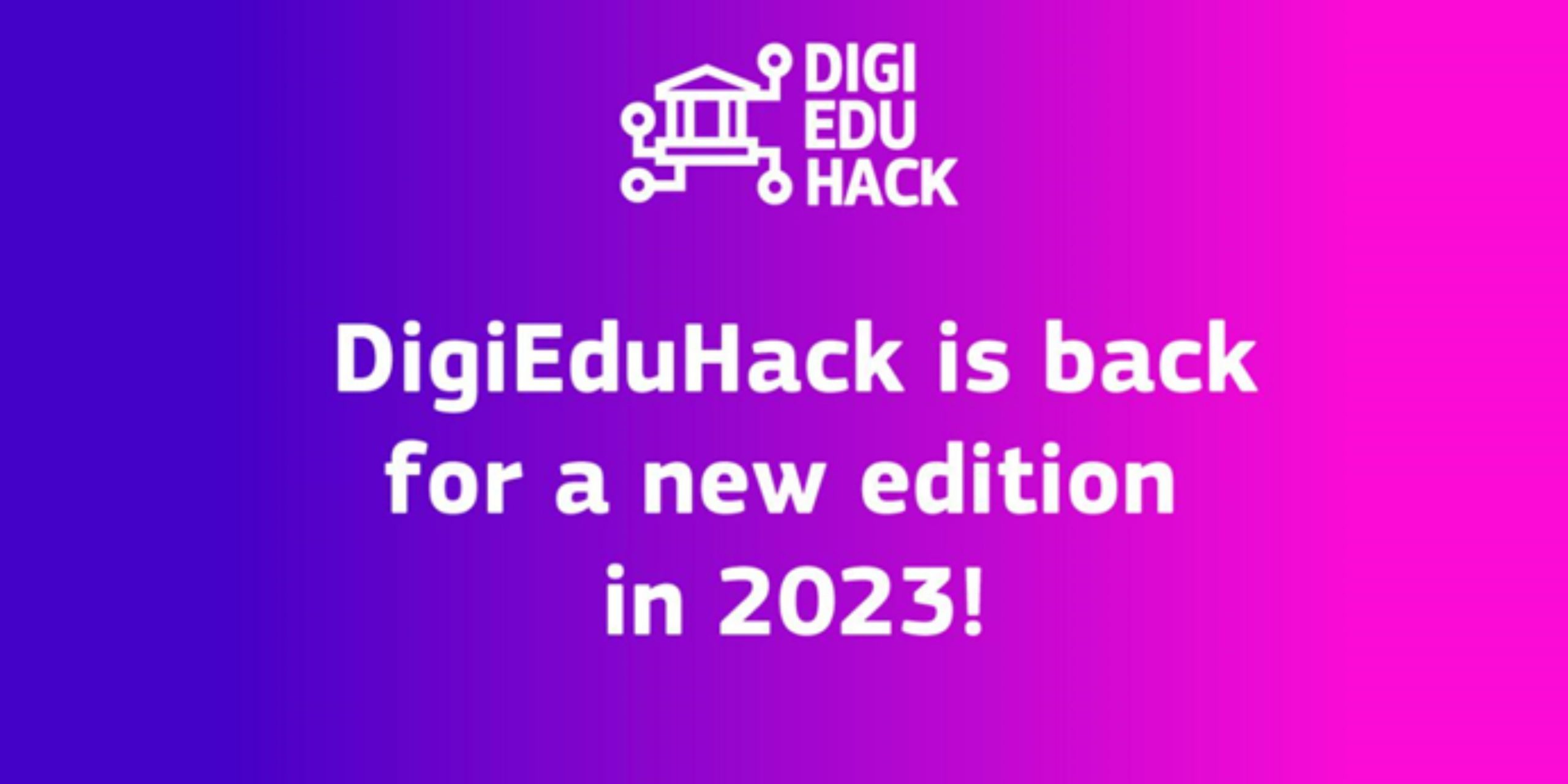This year marks the return of the Digital Education Hackathon (DigiEduHack) for its scaled up and expanded fourth edition.
DigiEduHack 2.0 – the consortium
After a completed open call for tenders, a consortium led by Cecoforma has been selected to run the next three editions of DigiEduHack in 2023, 2024 and 2025. The consortium will work in close cooperation with the European Commission, delivering one of the actions of the Digital Education Action Plan (2021-2027).
The consortium partners are Futuretournaments Oy (brand name Ultrahack), CARSA, Tallinn University, Aalto University and Educraftor.
New generation
Resuming after a 1-year pause, DigiEduHack will continue its tradition of being a grass-root initiative which brings together diverse stakeholders – teachers, educators, learners, policymakers, parent, innovators and others – to find solutions for the future of education in the digital age.
The new generation of DigiEduHack will be more ambitious and inclusive, looking to continuously engage the community of digital education innovators.
2023 plans
In 2023, the initiative will involve at least 75 hosting organisations and 2,500 participants through 55 events across Europe and around the world. DigiEduHack will also offer a number of learning opportunities across the year, such as webinars and short e-courses, and will establish gradually a network of national ambassadors across the EU and the Western Balkans region.
The DigiEduHack Global Award will reward the best three teams and support them to push their learning and transform their ideas into reality.
The initiative will also establish links and contribute to the objectives of the European Digital Education Hub, a flagship initiative that promotes exchange and cooperation across sectors and stakeholders on digital education and skills.
Stay tuned
DigiEduHack will take place in the last quarter of 2023, so stay tuned for more details soon on the DigiEduHack website and its social media channels (@DigiEduHack).
Background
DigiEduHack ran for three consecutive years under the Digital Education Action Plan 2018-2020. It quickly became one of the European Commission’s flagship initiatives on digital education.
The initiative focuses on the ‘future of education in the digital age’. It engages education and training institutions and other organisations in a contest to identify key challenges and co-create solutions across disciplines and organisations on digital education matters. Between 2019 and 2021, the initiative attracted more than 6,700 participants in Europe and beyond.
The initiative continues under the Digital Education Action Plan 2021-2027, with a long-term goal to support grass-root innovation and contribute to the objectives of the Digital Education Hub.
Source: European Commission I European Education Area (https://bit.ly/3kDt9Uy)
